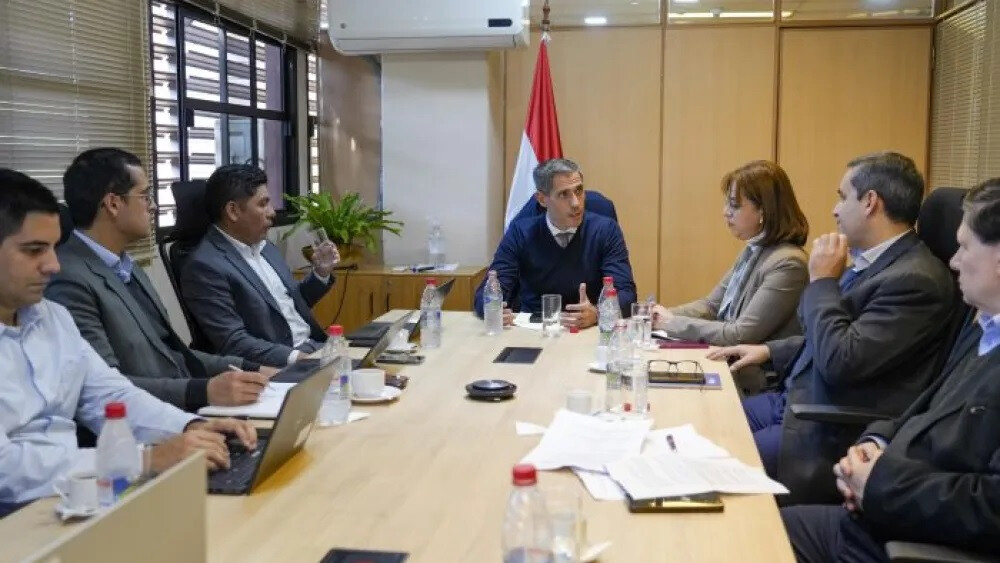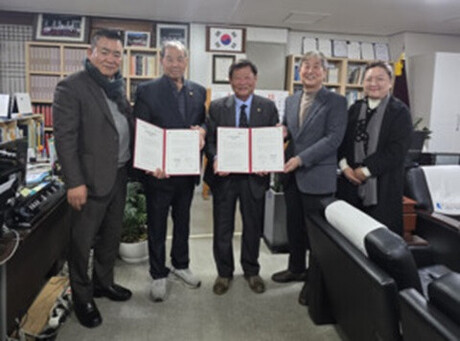
ASUNCIÓN – Paraguay's Ministry of Industry and Commerce (MIC), the Agence Française de Développement (AFD), and the Inter-American Development Bank (IDB) are exploring innovative avenues to revitalize industrial sector financing. In a high-level meeting held last Friday, these institutions discussed specific cooperation measures to address the long-standing problem of capital access for the industrial sector. This is seen as a significant step forward for the growth and modernization of Paraguayan industry.
Breaking Through in Industrial Financing
The meeting was attended by MIC Undersecretary for Industry Marco Riquelme, AFD President Stella Guillén, AFD Director Isaac Godoy, and IDB representatives. The core objective of the meeting was to identify mechanisms to provide practical credit solutions for the industrial sector.
One of the main alternatives discussed was the establishment of special funds and credit lines focused on industrial growth and modernization. Particular emphasis was placed on intensive support for strategic sectors with high potential for productive transformation. This demonstrates a commitment to not just providing funds, but to prioritizing investment in areas that have the potential to drive structural changes in Paraguayan industry.
Furthermore, the need for preferential terms, flexible repayment periods, and complementary technical assistance when designing financial products was emphasized. This aims to help businesses more easily secure the necessary funds for technological investment and sustainability transitions. The IDB and AFD expressed their willingness to actively collaborate in finding these financial solutions, signaling strong support for Paraguay's industrial development.
Addressing Paraguay's Long-Standing Funding Gap for Industry
This meeting is a direct response to the significant funding gap that Paraguayan industry has long experienced. A report by the Paraguayan Industrial Union (UIP) highlighted that this financial gap poses a major challenge, especially for companies pursuing localization.
MIC Undersecretary for Industry Marco Riquelme acknowledged the severity of the issue, stating, "Our country has a great obligation to establish public policies to facilitate financing for companies of all sizes, including not only SMEs but also medium and large enterprises." This suggests that the government must play an active role in ensuring balanced growth across the entire industrial sector.
The UIP document also pointed out that Paraguay's lack of an integrated industrial policy has led to premature maturation of certain sectors, such as the service sector. This causes imbalanced growth among industrial sectors, hindering the overall development of the national economy.
According to analysis from the UIP Research Center, sectors with the greatest potential to transform the production structure do not always have high credit access, and the distribution of funds is not always based on financial soundness criteria. This indicates inefficiencies in the financial market, implying that improvements in the fund allocation system are urgently needed for the long-term development of the national economy.
Future Prospects and Challenges
This collaboration between MIC, AFD, and IDB is an important first step in addressing the financial issues of Paraguay's industrial sector. However, for real change, the discussed measures must translate into concrete action plans.
In particular, the clear definition of "strategic sectors" and the development of tailored financial products based on this definition are crucial. In-depth analysis is required to determine which industries hold the greatest potential for Paraguay's productive transformation, ensuring that funds are efficiently allocated accordingly. Furthermore, it is essential for financial institutions to establish a comprehensive support system that goes beyond simply providing funds, by offering technical assistance and consulting to strengthen corporate capabilities.
Through this cooperation, the Paraguayan government will need to focus on resolving the long-standing problem of a lack of industrial policy and improving the financial environment to enable sustainable growth for businesses of all sizes. This is expected to enable Paraguayan industry to become more competitive and lay the groundwork for contributing to national economic development.
[Copyright (c) Global Economic Times. All Rights Reserved.]






























